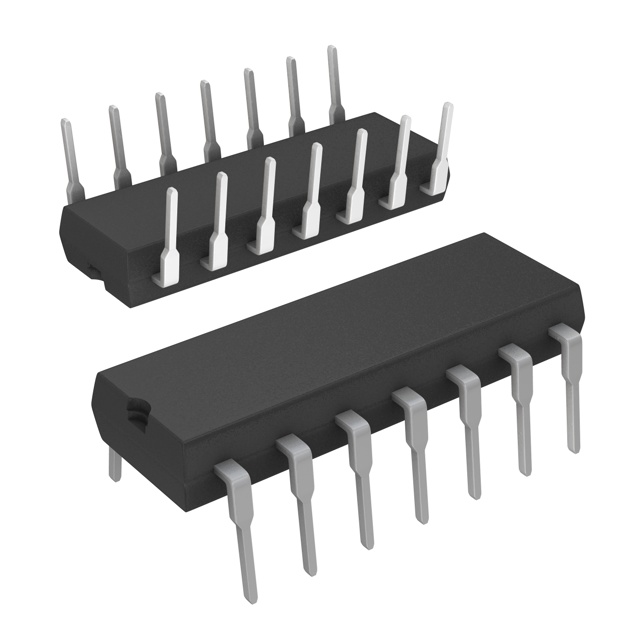SN54HC273VTDG2
Manufacturer No:
SN54HC273VTDG2
Manufacturer:
Description:
IC GATE AND 4CH 2-INP DIE
Datasheet:
Delivery:





Payment:




In Stock : 0
Please send RFQ , we will respond immediately.









SN54HC273VTDG2 Specifications
-
TypeParameter
-
Package / CaseDie
-
Supplier Device PackageDie
-
Mounting Type-
-
Operating Temperature-
-
Max Propagation Delay @ V, Max CL-
-
Input Logic Level - High-
-
Input Logic Level - Low-
-
Current - Output High, Low5.2mA, 5.2mA
-
Current - Quiescent (Max)-
-
Voltage - Supply2V ~ 6V
-
Features-
-
Number of Inputs2
-
Number of Circuits4
-
Logic TypeAND Gate
-
PackagingTube
-
Product StatusActive
-
Series54HC
The SN54HC273VTDG2 is a specific type of integrated circuit chip that belongs to the SNx4HC273 family of devices. It is an octal D-type flip-flop with clear, designed for general-purpose storage applications. Here are some advantages and application scenarios of this chip:Advantages: 1. High-speed operation: The SN54HC273VTDG2 chip operates at high speeds, making it suitable for applications that require quick data storage and retrieval. 2. Low power consumption: It is designed to consume low power, making it energy-efficient and suitable for battery-powered devices. 3. Wide operating voltage range: The chip can operate within a wide voltage range, typically between 2V and 6V, allowing flexibility in various applications. 4. Schmitt-trigger inputs: The chip has Schmitt-trigger inputs, which provide hysteresis and improve noise immunity, ensuring reliable operation even in noisy environments. 5. Clear functionality: The chip includes a clear input that allows the user to reset the flip-flop to a known state, enhancing control and flexibility in applications.Application scenarios: 1. Data storage and synchronization: The SN54HC273VTDG2 chip can be used to store and synchronize data in various digital systems, such as microcontrollers, digital signal processors, and communication devices. 2. State machine design: It can be used in the design of state machines, where sequential logic is required to control the system's behavior based on specific conditions or inputs. 3. Address decoding: The chip can be used in address decoding circuits, where it helps in selecting specific memory locations or peripheral devices based on the address inputs. 4. Clock domain crossing: In systems with multiple clock domains, the chip can be used to synchronize data between different clock domains, ensuring proper operation and preventing data corruption. 5. Control and timing circuits: The chip can be used in various control and timing circuits, where the storage and retrieval of data at specific times or conditions are required.It is important to note that the specific application scenarios may vary depending on the overall system requirements and design considerations.
SN54HC273VTDG2 Relevant information







